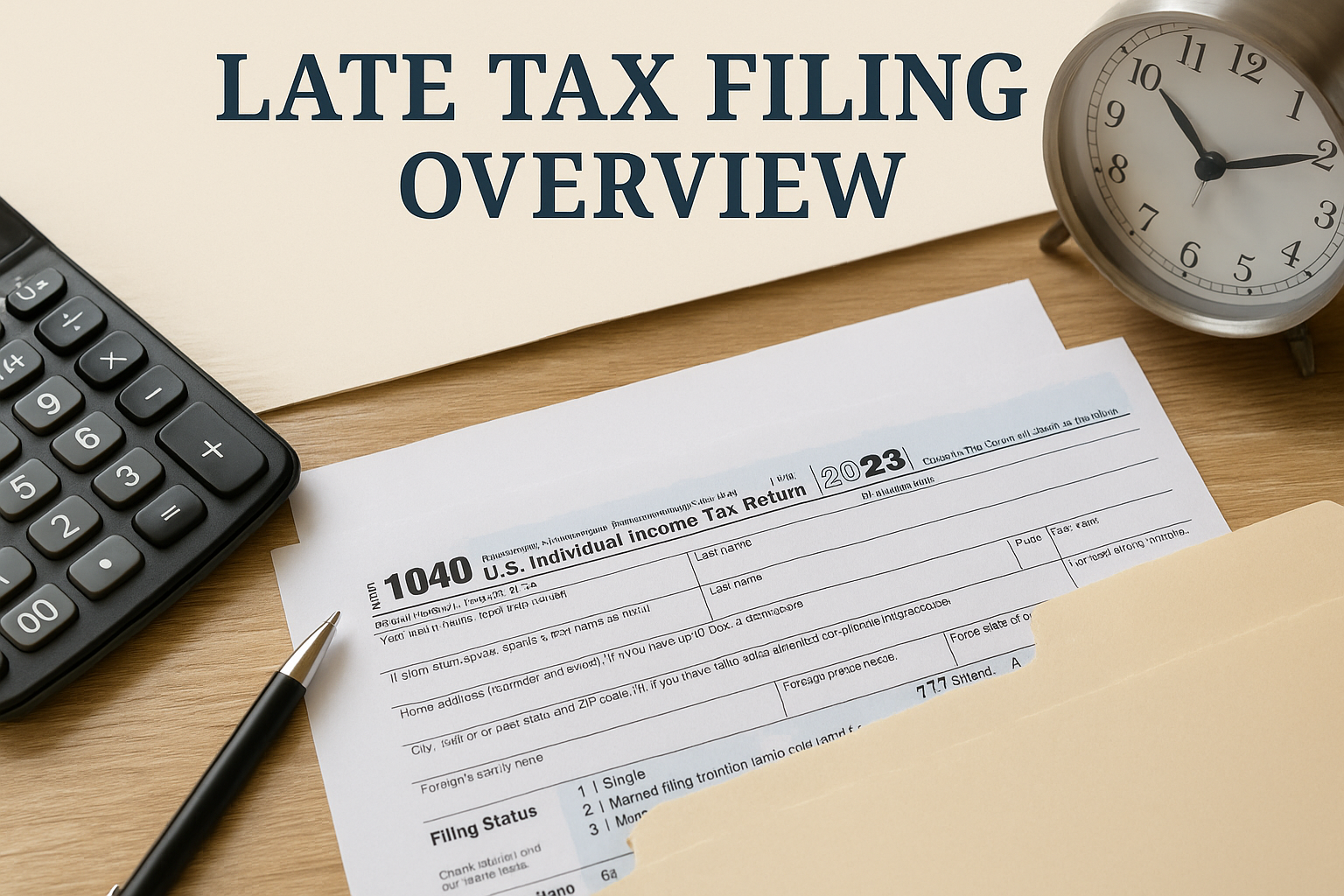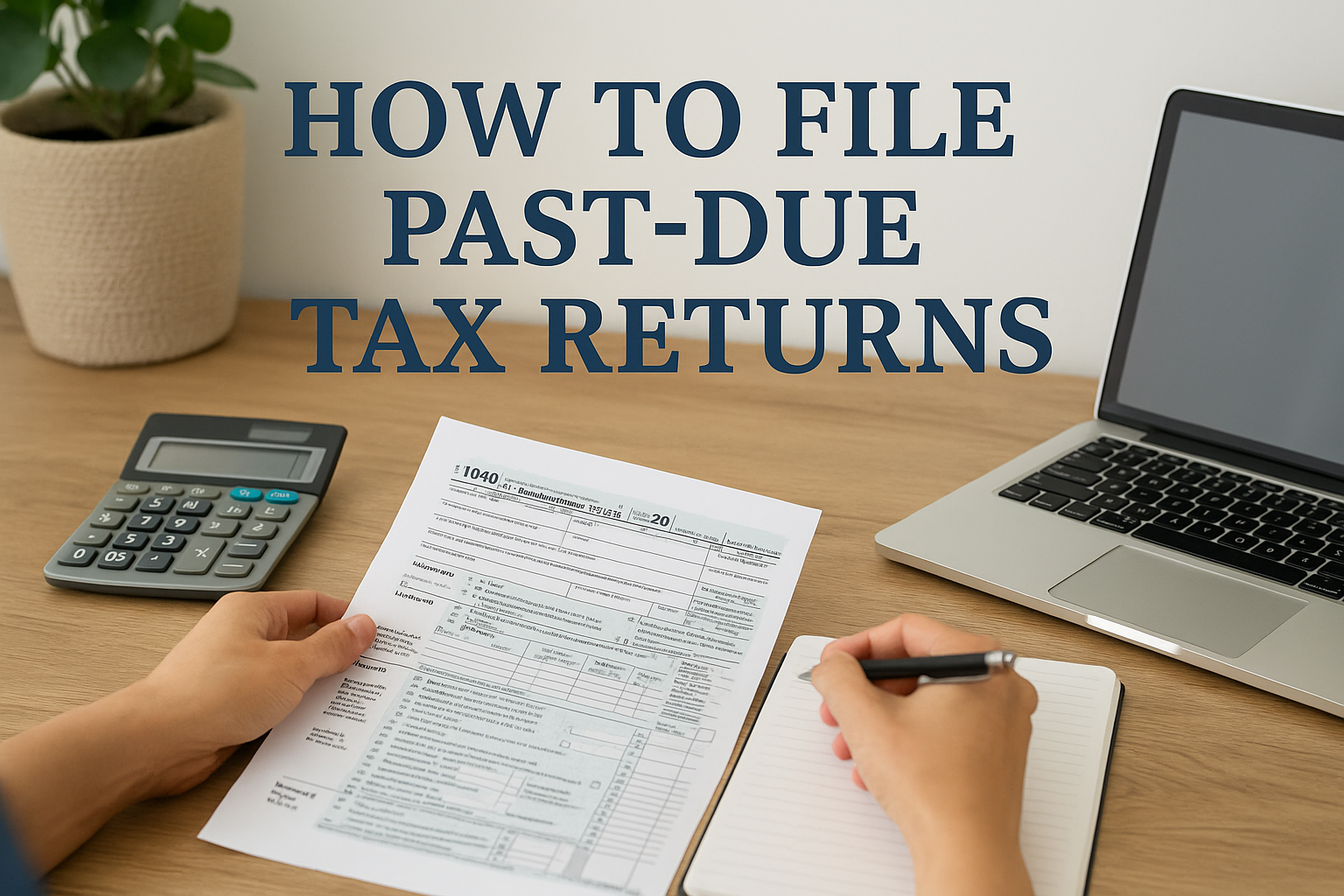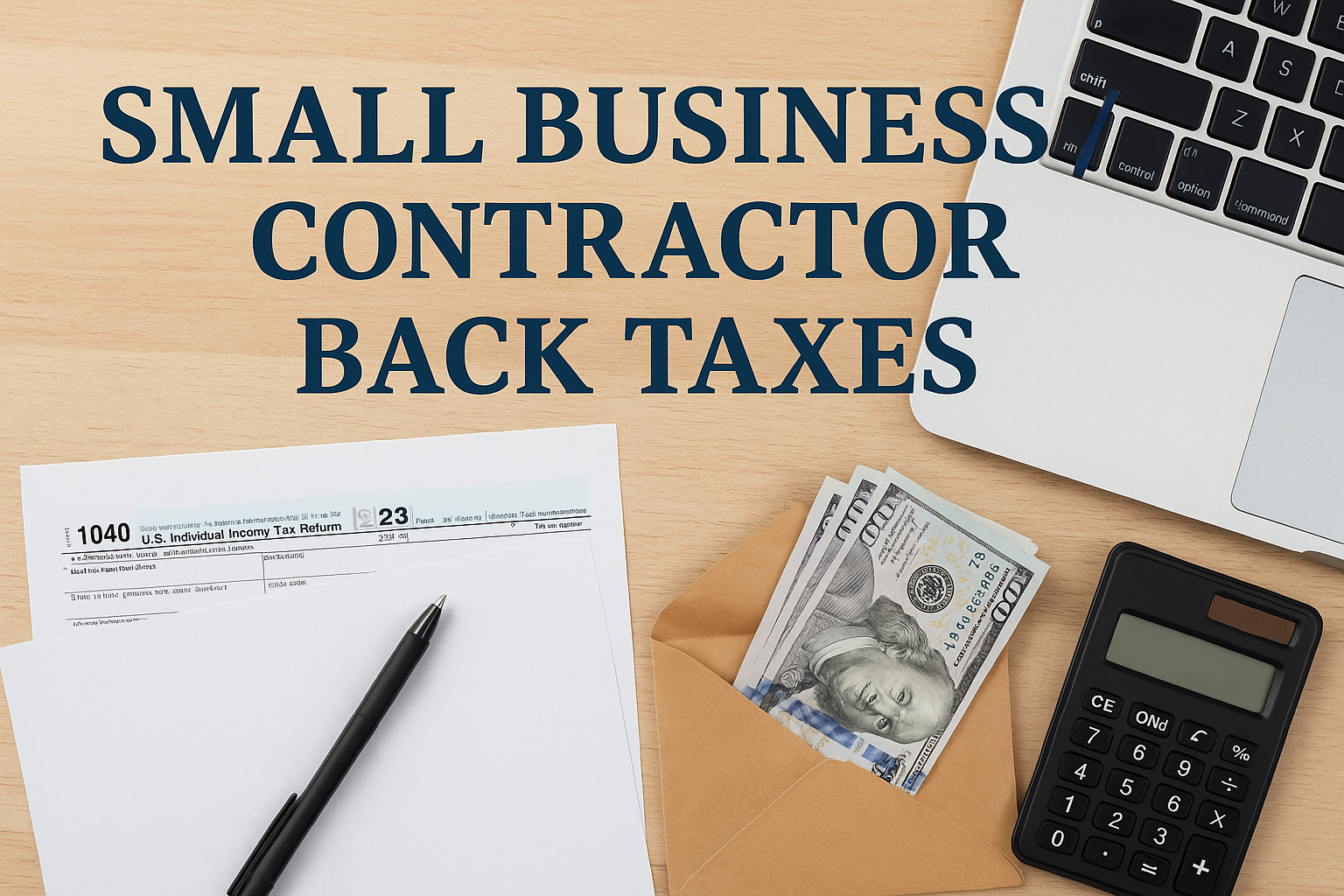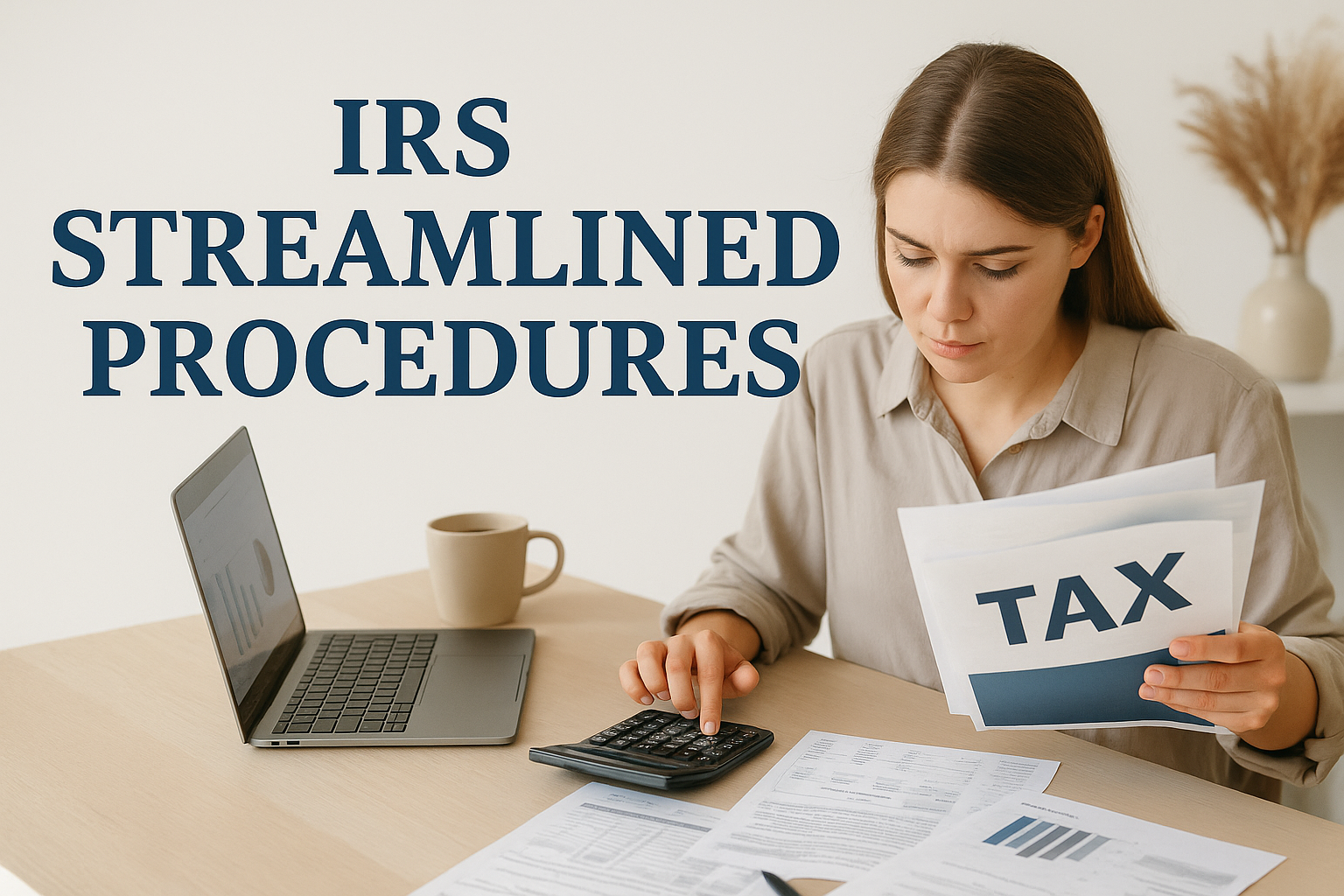Delinquent Tax Compliance Information
-

Late Tax Filing Overview
Missed the tax deadline?
Filing late can lead to steep penalties, delayed refunds, and increased audit risk. This article breaks down the financial and procedural implications of late filing—including IRS penalties, refund limitations, and audit exposure—so you can make informed decisions and avoid common pitfalls.
-

How to File Past-Due Tax Returns
Catching up on unfiled tax returns can feel overwhelming, but it’s easier with a clear plan. This guide walks you through gathering the necessary documents, finding missing information, and choosing the right forms for each year. It also covers how to file correctly, manage payments, and request penalty relief when needed.
By following these steps, you can reduce stress, avoid common mistakes, and get back in good standing with the IRS.
-

Back Taxes: Small Business and Contractor
Filing past-due taxes can be especially challenging when you're self-employed or working as an independent contractor. Without an employer to handle tax withholding and reporting, you're responsible for tracking income, claiming business expenses, and calculating self-employment taxes on your own.
This guide outlines how to gather the right documents, report your income accurately, manage payments, and navigate common pitfalls like misclassification or missing records. With the right steps, you can bring your filings current and reduce potential penalties.
-

Streamlined Filing vs. Voluntary Disclosure
For U.S. taxpayers with unreported offshore accounts, the IRS offers two main options to come into compliance: Streamlined Filing and Voluntary Disclosure. The best path depends on whether the noncompliance was accidental or intentional.
Streamlined Filing is designed for those who acted non-willfully—due to a mistake or misunderstanding—and offers a simpler process with reduced or no penalties. Voluntary Disclosure is for those who acted willfully and want to avoid criminal charges, though it involves higher penalties and more scrutiny.
Understanding the difference is key to choosing the right option and resolving offshore issues safely and effectively.
-

IRS Streamlined Filing Compliance Procedures
U.S. taxpayers with unreported foreign assets or income may be eligible for the IRS Streamlined Filing Compliance Procedures—a program designed for those whose noncompliance was non-willful. This guide breaks down eligibility, documentation, step-by-step filing, benefits, and risks. Learn how to avoid major penalties, reduce audit exposure, and regain tax compliance with clarity and confidence.
-

The IRS Voluntary Disclosure Practice
For U.S. taxpayers who knowingly failed to report offshore accounts or assets, the IRS Voluntary Disclosure Practice offers a chance to come clean and potentially avoid criminal prosecution. This program is intended for those facing serious legal risk due to willful noncompliance.
While the process is strict and penalties are high, it provides a formal route to resolve outstanding tax issues. Acting early—before the IRS initiates contact—is key to qualifying and successfully completing the program.
